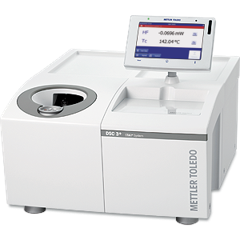
Differential Scanning Calorimetry is a key analytical method that measures heat changes in a material as a function of temperature. It is particularly useful for small molecule characterization, offering insights into:
DSC Process Overview
Applications of DSC in Solid State Characterization
Why Choose The Solubility Company for DSC Analysis?

Analyzing different crystalline forms affecting bioavailability and stability.

Determining crystalline vs. amorphous content, influencing dissolution rates and stability.

Establishing critical temperatures for formulation and storage.

Viikinkaari 4
00790 Helsinki
FINLAND
1 Broadway
Cambridge MA 01242
United States